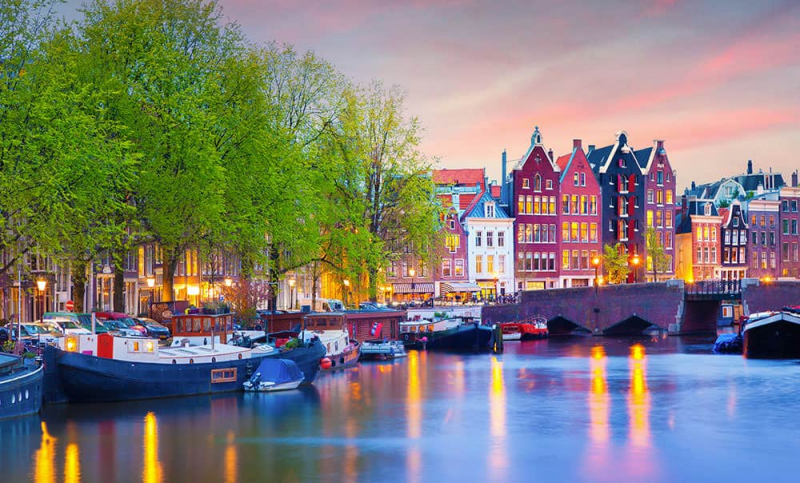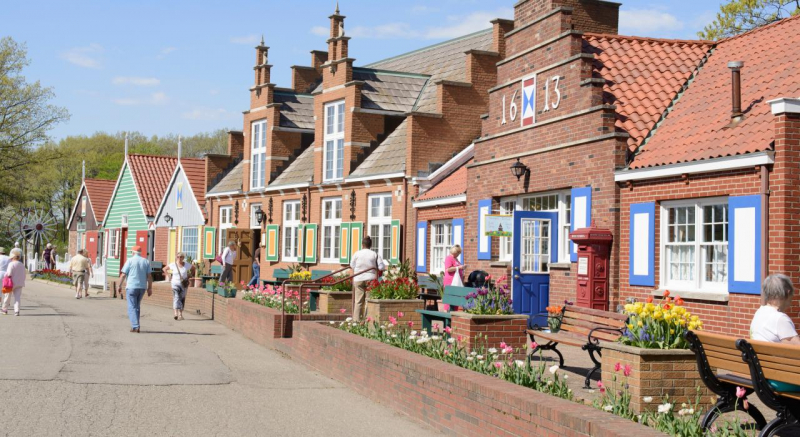Holland
Holland is a city in the western region of the Lower Peninsula of the U.S. state of Michigan. It is situated near the eastern shore of Lake Michigan on Lake Macatawa, which is fed by the Macatawa River. The city is perhaps best known for its Dutch heritage, which serves not only as a part of the city's cultural identity, but the local economy as well: the Tulip Time Festival in May and various Dutch-themed attractions augment the nearby Lake Michigan shoreline in attracting thousands of tourists annually. Over 28% of the population identified as being of Dutch descent. The Holland Museum contains exhibits about the city's history. Another, the Cappon House Museum, was built in 1874 and is a historic museum that once housed the first mayor of Holland, Dutch immigrant Isaac Cappon. The Settlers House Museum, a building that survived the great fire, contains furnishings and relics from the 19th Century. Holland's downtown is listed on the National Register of Historic Places.
The "Snowmelt Project" established pipes transporting warm water from the nearby power plant to travel underneath downtown with the purpose of clearing the streets and sidewalks in the downtown area of any snow. Each May Holland hosts an annual Tulip Time Festival. Tulip planting and the festival began in 1930 when 250,000 tulips were planted for the event. Currently, six million tulips are used throughout the city. Tulips are planted along many city streets, in city parks, and outside municipal buildings as well as at tourist attractions like Dutch Village, the city-owned Windmill Island Gardens, and at a large tulip farm named Veldheer Tulip Gardens. It is normally held the second week of May, during the tulip blooming season. Cruise ships such as the Yorktown from the Great Lakes Cruising Company make Holland a port of call.
Location: Ottawa and Allegan counties, Michigan, United States
Tripadvisor Review: 329 reviews












